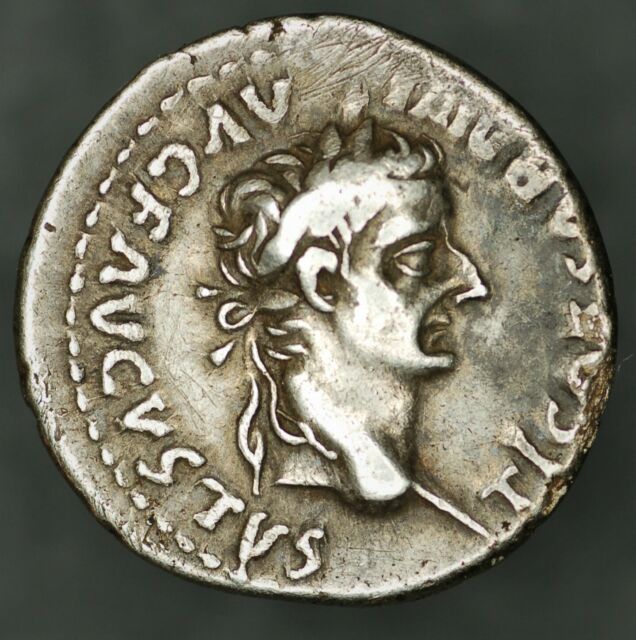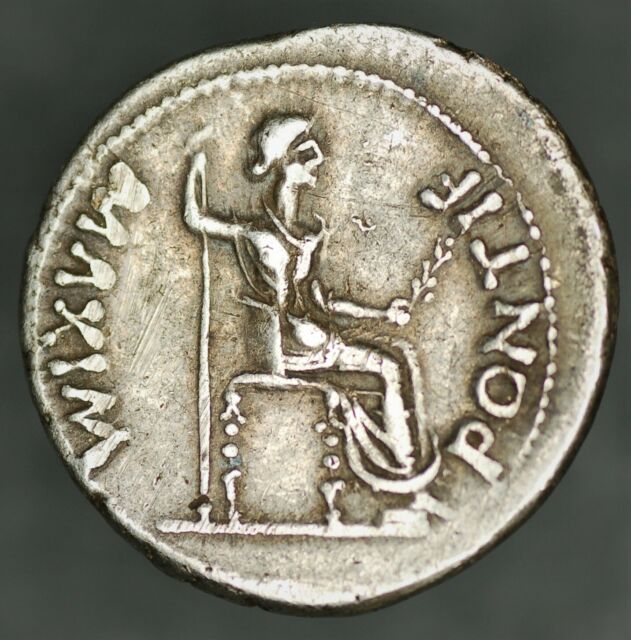|
We start by reading Psalm 56:1-6, written over a thousand years before Christ was born. Verse 6 shows how it is possible to twist the writer's words. 1 Be merciful to me, my God, for my enemies are in hot pursuit; all day long they press their attack. 2 My adversaries pursue me all day long; in their pride many are attacking me. 3 When I am afraid, I put my trust in you. 4 In God, whose word I praise-- in God I trust and am not afraid. What can mere mortals do to me? 5 All day long they twist my words; all their schemes are for my ruin. 6 They conspire, they lurk, they watch my steps, hoping to take my life. This Psalm leads into today’s service, which is predominantly the Gospel story of Matthew 22:15-22, where the Pharisees and the Herodians try to trick Jesus. The lectionary also highlights Isaiah 45:1-7, so let us look at that reading first then lead into the Gospel. 1 “This is what the Lord says to his anointed, to Cyrus, whose right hand I take hold of to subdue nations before him and to strip kings of their armour, to open doors before him so that gates will not be shut: 2 I will go before you and will level the mountains; I will break down gates of bronze and cut through bars of iron. 3 I will give you hidden treasures, riches stored in secret places, so that you may know that I am the Lord, the God of Israel, who summons you by name. 4 For the sake of Jacob my servant, of Israel my chosen, I summon you by name and bestow on you a title of honour, though you do not acknowledge me. 5 I am the Lord, and there is no other; apart from me there is no God. I will strengthen you, though you have not acknowledged me, 6 so that from the rising of the sun to the place of its setting people may know there is none besides me. I am the Lord, and there is no other. 7 I form the light and create darkness, I bring prosperity and create disaster; I, the Lord, do all these things. Isaiah prophesied from 740-681 BC. This reading highlights Cyrus as doing God’s bidding. Cyrus the Great was born in 600 BC and died in 70 years later, we believe, on 4th December 530 BC, probably in battle. Cyrus became king in 560BC reigning for 30 years and had the grand titles of King of Anshan, King of Persia, King of Media, King of the World, King of Babylon, King of Sumar and Akkad, and King of the Four Corners of the World. The strange thing about the passage is Isaiah wrote it around 150 years before Cyrus the Great came to power; it is a prophecy. Cyrus the Great was the founder of the Persian Empire, now known as Iran. He was a great military strategist and is the only non-Jewish person given the title of Messiah in the Bible. He knew the world of politics but showed humanitarian traits as he respected the customs and religions of the people he conquered. His empire was the largest ever known at the time, spanning two thousand miles, including Assyria and Babylonia. It was Cyrus who allowed the Jewish people to leave their exile and for Jerusalem to be rebuilt. Cyrus is significant in the history of Israel, and Isaiah prophesied it 150 years before. In one report, it said because Cyrus read the account of Isaiah, Cyrus made the prophecy come true by invading and freeing the people of Israel. God, therefore, is not limited to using the Jewish population; God can use anybody, Jew or Gentile. It is always important to remember this in our relationship with God; God can and does use us to fulfil God’s almighty plan. We move into Matthew and the trickery with which he had to deal. 15 Then the Pharisees went out and laid plans to trap him in his words. 16 They sent their disciples to him along with the Herodians. “Teacher,” they said, “we know that you are a man of integrity and that you teach the way of God in accordance with the truth. You aren’t swayed by others, because you pay no attention to who they are. 17 Tell us then, what is your opinion? Is it right to pay the imperial tax to Caesar or not?” 18 But Jesus, knowing their evil intent, said, “You hypocrites, why are you trying to trap me? 19 Show me the coin used for paying the tax.” They brought him a denarius, 20 and he asked them, “Whose image is this? And whose inscription?” 21 “Caesar’s,” they replied. Then he said to them, “So give back to Caesar what is Caesar’s, and to God what is God’s.” 22 When they heard this, they were amazed. So they left him and went away. To put you in the mood here is a story: In a small Italian town, hundreds of years ago, a small business owner owed a large sum of money to a loan-shark. The loan-shark was a very old, unattractive looking guy that just so happened to fancy the business owner’s daughter. He decided to offer the businessman a deal that would completely wipe out the debt he owed him. However, the catch was that we would only wipe out the debt if he could marry the businessman’s daughter. Needless to say, this proposal was met with a look of disgust. The loan-shark said that he would place two pebbles into a bag, one white and one black. The daughter would then have to reach into the bag and pick out a pebble. If it was black, the debt would be wiped, but the loan-shark would then marry her. If it was white, the debt would also be wiped, but the daughter wouldn’t have to marry the loan-shark. Standing on a pebble-strewn path in the businessman’s garden, the loan-shark bent over and picked up two pebbles. Whilst he was picking them up, the daughter noticed that he’d picked up two black pebbles and placed them both into the bag. He then asked the daughter to reach into the bag and pick one. The daughter naturally had three choices as to what she could have done: 1.Refuse to pick a pebble from the bag. 2. Take both pebbles out of the bag and expose the loan-shark for cheating. 3. Pick a pebble from the bag fully well knowing it was black and sacrifice herself for her father’s freedom. She drew out a pebble from the bag, and before looking at it ‘accidentally’ dropped it into the midst of the other pebbles. She said to the loan-shark; “Oh, how clumsy of me. Never mind, if you look into the bag for the one that is left, you will be able to tell which pebble I picked.” The pebble left in the bag is obviously black, and seeing as the loan-shark didn’t want to be exposed, he had to play along as if the pebble the daughter dropped was white, and clear her father’s debt. Moral of the story: It’s always possible to overcome a tough situation through out of the box thinking, and not give in to the only options you think you have to pick from. In the Gospel reading, Jesus the Pharisees and the Herodians questioned Jesus. Knowledge of the Herodians is scarce, other than they must be supporters of Herod. Therefore, the Herodians were in opposition to the Pharisees - the common enemy of Jesus brings forth strange bedfellows. Yet, Jesus had the measure of them. The fact they produced a Denarius when Jesus asked for a coin has implications. On the Denarius it reads "Ti(berivs) Caesar Divi Avg(vsta) F(ilivs) Avgvtvs", which in English means Caesar Augustus Tiberius, son of the divine Augustus. On the reverse, we have a seated female, believed to be Livia depicted as Pax, the goddess of Peace, with the words "Pontif Maxim". Having the image of Tiberius was an anathema to the Jews. The fact that it claimed Augustus was God was offensive to the Jewish population. As a result, pious Jews did not carry that coin but did their business using smaller denominations. The coin itself was worth one day’s labour; smaller copper coins, which did not hold the face of the emperor, were quite ordinary and were used for daily life. So, the Denarius must have been produced by a Herodian because a Pharisee, would not carry such a coin. So, Jesus comes up with the famous statement, “Render to Caesar that which is Caesar's.” In some Bibles, the translation is not "render" but "give to Caesar". I understand the Greek "to render" means to give back, which implies they must have received something already. They were benefitting by the Roman occupation, profiting from the blessings of good communication, transport links, freedom from tribal warfare, stable currency with coins used all over the known world and general peace. It is strange to think of an occupation bringing blessings, and I presume if you live in such a society, the expectations are you give back to that society from which you have taken. There is a common theme throughout the new testament. Jesus says to love your enemies, and Paul frequently writes to submit to the authorities, as does Peter. So, the idea of giving back to Caesar reflects they are part of the Roman situation. But when spirituality conflicts with society, Jesus says God comes first; even though we live in society, it is obedience to God that comes first. So, his famous sentence is quite brilliant, as it satisfies both parties and the people posing the question were amazed at the answer. They found the answer quite marvellous. The scene is then set for the Sadducees to have a go at questioning Jesus, but for the minute, Jesus had shown his ability at dealing with tricky questions. So, let us reflect: we acknowledge the blessings we receive from living in society; we give back, but we also recognise God’s importance, which means we have absolute obedience to God. In today’s world, Covid-19 means we put our trust in God, but there are also so many other groups who are requesting our support, Black Lives Matter and climate change being two examples. We have to obey the law because it is Biblical, but that does not mean we cannot stand up for others. It is also Biblical that we should stand up and try to change the structures in society that result in injustice. It is a balance, what do we give back to our communities, and what do we offer to God? This sermon was first preached by Rev'd Martin Wheadon at Great Dunmow United Reformed Church on 18th October 2020
0 Comments
Your comment will be posted after it is approved.
Leave a Reply. |
©Copyright
We are happy for you to use any material found here, however, please acknowledge the source: www.gantshillurc.co.uk AuthorRev'd Martin Wheadon Archives
June 2024
Categories
All
|


 RSS Feed
RSS Feed